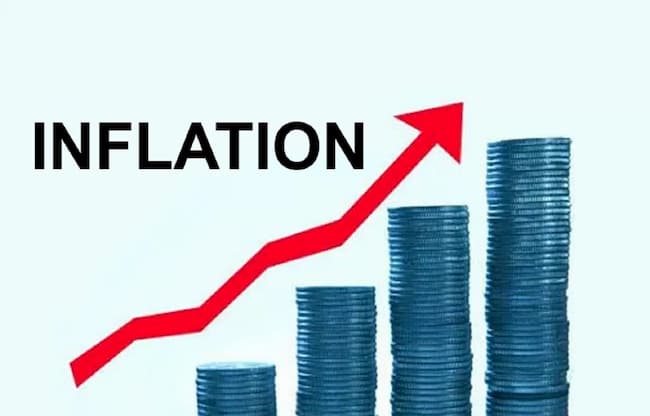Because of a persistent overall increase in the cost of food and other necessities, Nigeria’s headline inflation rate increased further in March 2023. The headline inflation rate increased to 22.04% from the 21.91% published in February, according to the National Bureau of Statistics (NBS). This represents a rise of 0.13% points when compared to the inflation number for February.
The headline inflation rate was 6.13% points higher year over year than the 15.92% rate registered in March 2022. This demonstrates that, as compared to the same month in the year prior 2022, the headline inflation rate rose in March 2023. Food and non-alcoholic beverages are the divisional level items that have contributed to the increase in the headline index (11.42%); housing, water, electricity, gas & other fuel (3.69%); clothing & footwear (1.69%).
Spending on transportation (1,43%), furniture, domestic equipment & maintenance (1,11%), education (0.87%), health (0.66%), and other goods & services (0.37%) adds to the pressures. There are also leisure & culture (0.15%), communication (0.15%), alcoholic drinks, tobacco, & kola (0.24%), restaurants & hotels (0.27%), and kola (0.24%).
Nevertheless, the All-Items Index in March 2023 was 1.86%, which was 0.15% points higher than 1.71% reported in February 2023. This difference was based on a month-over-month comparison. According to NBS, this indicates that the overall price level was, on average, 0.15% higher in March 2023 compared to February 2023.
The average CPI for the twelve months ending in March 2023 changed by 20.37% over the average CPI for the twelve months before to that, a 3.83% rise from the 16.54% recorded in March 2022.
URBAN INFLATION
On a year-on-year basis, in March 2023, the urban inflation rate was 23.07%, this was 6.63% points higher compared to the 16.44% recorded in March 2022. On a month-on-month basis, the urban inflation rate was 2.00% in March 2023, this was 0.15% points higher compared to February 2023 (1.85%).
The corresponding twelve months average for the urban inflation rate was 21.00% in March 2023. This was 3.90% points higher compared to the 17.10% reported in March 2022.
RURAL INFLATION
The rural inflation rate in March 2023 was 21.09% on a year-on-year basis; this was 5.67% points higher compared to the 15.42% recorded in March 2022. On a month-on-month basis, the rural inflation rate in March 2023 was 1.72%, up by 0.14% points compared to February 2023 (1.58%).
The corresponding twelve months average for the rural inflation rate in March 2023 was 19.79%. This was 3.79% points higher compared to the 16.00% recorded in March 2022. The food inflation rate in March 2023 was 24.45% on a year-on-year basis; which was 7.25% points higher compared to the rate recorded in March 2022 (17.20%).
The rise in food inflation on- year on year basis was caused by increases in prices of Oil and fat, Bread and cereals, Potatoes, Yam and other tubers, Fish, Fruits, Meat, Vegetables, and Spirits. On a month-on-month basis, the food inflation rate in March 2023 was 2.07%, this was 0.16% higher compared to the rate recorded in February 2023 (1.90%).
The average annual rate of food inflation for the twelve months ending March 2023 over the previous twelve months’ average was 22.72%, which was a 3.50% points increase from the average annual rate of change recorded in March 2022 (19.21%).













